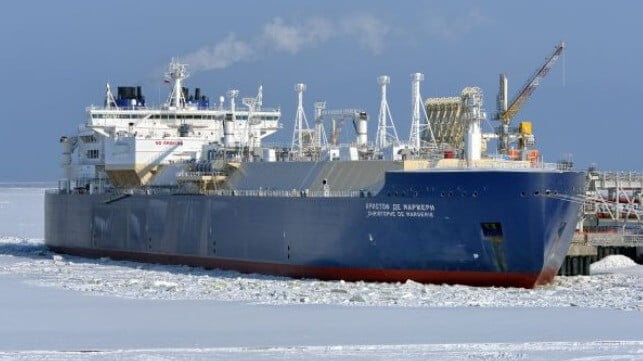Russian Supply Uncertainty Triggers Price Hikes in LNG Market

Europe's uncertain winter heating season could get worse if the Kremlin decides on a complete shutdown of gas flows when the continent's gas system is at its most vulnerable. The high temperature sensitivity of space heating demand means that Europe's natural gas reserves can only go so far to manage a cold winter without Russian gas, the International Energy Agency (IEA) has warned.
The IEA warns that Europe’s gas supply faces unprecedented risk as Russia increasingly wields energy exports as a political weapon. Russia has reduced its gas supplies to the European Union (EU) by close to 50 percent year-on-year since the start of 2022. This year’s winter gas season opens with extreme natural gas price levels and volatility caused by an unprecedented uncertainty of supply.
The result has been high demand for alternative sources of supply for Europe and other importing regions. Considering that a total cut-off in Russian flows to Europe cannot be ruled out, the crisis is creating tensions and demand destruction for all competing liquefied natural gas (LNG) importers, IEA cautioned.
“Russia’s invasion of Ukraine and sharp reductions in natural gas supplies to Europe are causing significant harm to consumers, businesses and entire economies – not just in Europe but also in emerging and developing economies,” said Keisuke Sadamori, IEA Director of Energy Markets and Security.
According to the IEA, Russia’s continued curtailment of natural gas flows to Europe has also led to acute fuel shortages in some emerging and developing economies. Natural gas markets worldwide have been tightening since 2021, and global gas consumption is expected to decline by 0.8 percent in 2022 as result of a record 10 percent contraction in Europe.
The report shows that natural gas demand in China and Japan was almost unchanged during the third quarter, while demand contracted in India and Korea. Chinese gas demand is forecast to increase by less than two percent this year, its lowest annual growth rate since the early 1990s.
Global gas consumption is forecast to grow by only 0.4 percent next year, with the outlook being subject to a high level of uncertainty, particularly in terms of Russia’s future actions and the economic impacts of sustained high energy prices.
The Russia-instigated crisis saw gas prices and Asian spot LNG prices spike to record highs in the third quarter of 2022, thus reducing demand and forcing a switch to other fuels such as coal and oil for power generation. In some emerging and developing economies, the price spikes triggered shortages and power cuts.

that matters most
Get the latest maritime news delivered to your inbox daily.
IEA reckons that Europe must find mechanisms for gas saving to minimize storage withdrawals and keep inventories at adequate levels until the end of the heating season. A reduction in demand of 13 percent from the five-year average would be necessary to sustain storage levels above 33 percent.
However, a 13 percent demand reduction would also necessitate gas savings from households and require more tightly-managed electricity and gas consumption behavior, with analysis indicating that behavior change could reduce gas demand by 15 bcm during the 2022/23 heating season.
